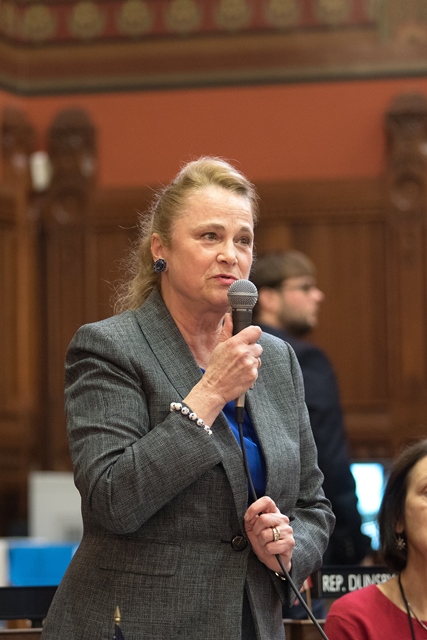Posted on November 16, 2017


HARTFORD – Following the agreement between the Connecticut Hospitals Association and the administration that specifies process filings (e.g., Medicaid state plan amendments), provider tax payments by hospitals, and supplemental payments to be made by the state over the course of the biennium, the Connecticut General Assembly yesterday passed some necessary technical changes to the budget approved at the end of October. State Representatives Kathleen McCarty (R-Waterford) and Holly Cheeseman (R-East Lyme) both supported the changes saying that they were important steps towards fiscal stability.

“The next biennium budget was finalized yesterday with limited changes,” said Rep. McCarty. “As I stated before, it is not an ideal budget but I do appreciate that it insulates to a greater degree both Waterford and Montville from devastating cuts to core services, education and other vital municipal aid that would have been realized without the budget in place. There is still much work to be done in the upcoming legislative session to ensure that the budget remains in balance. This special session was very trying regarding the negotiated budget but I am more than pleased that the Millstone bill passed the House.”
“These essential updates to the budget complete the hard work that was started months ago,” said Rep. Cheeseman. “Our budget work is now behind us, and, by working together in a truly bipartisan fashion, the legislature has achieved a great milestone. Of course, there is still plenty of work ahead to keep Connecticut on the right path. Continued deficit mitigations and negotiations will certainly keep us busy in the new year.”
The budget fixes yesterday revert the elderly/disabled Renters Rebate Program back to the way it was carried out before the passage of the budget at the end of October. The full amount needed to fund the program will now be appropriated. Cities and towns are in a better financial position than they were before this change because the budget would have required towns to cover the entire cost of the Renters’ Rebate Program. Municipalities will now contribute to less than half of the costs of the program.
The budget changes also address the fact that some towns assumed less municipal aid when they budgeted, and ended up getting more aid when the state budget was passed. Consequently, the property taxes they imposed on their towns were higher than necessary. The budget changes allow these towns to reduce their local taxes in the middle of the fiscal year, after their budgets have already been adopted, through a streamlined process by a simple vote by the local legislative body.
